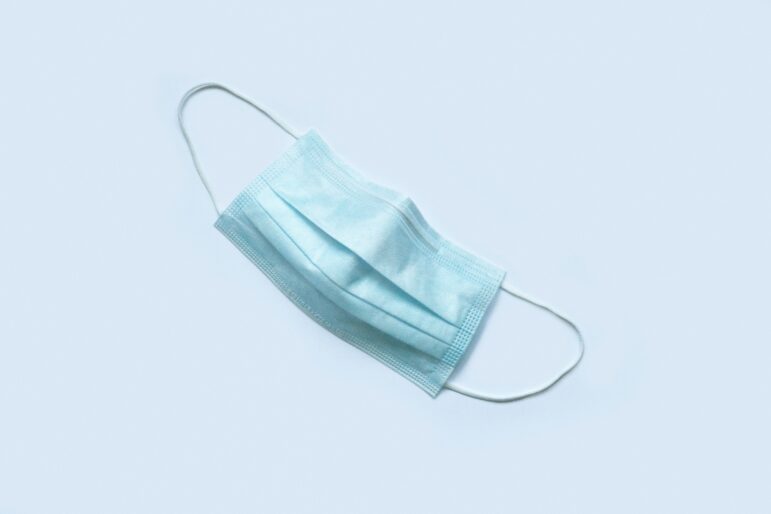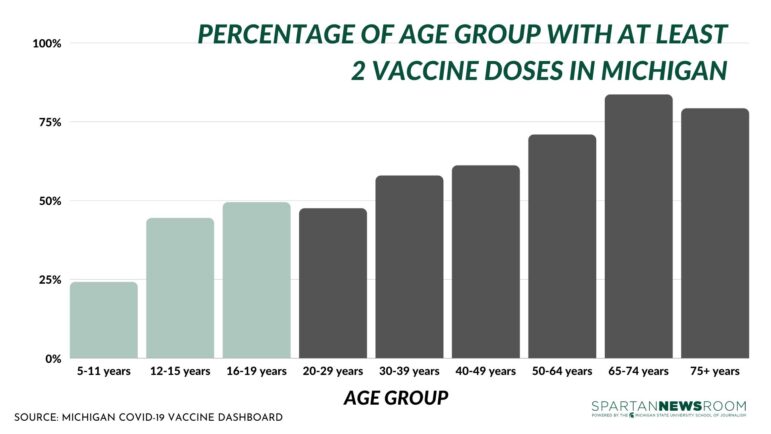
Photo by Pam Menegakis on Unsplash
Okemos Public Schools dropped its mask mandates on Feb. 23 and as of this past Wednesday, Haslett Public Schools also lifted the mandate regardless of vaccination status.
As K-12 schools start to dropping their mask mandates as COVID-19 cases plummet, some public health experts are concerned about the decision.
“We understand that this change may cause relief for some and anxiety for others. Individuals still have the option to wear masks if they so choose,” Haslett Public School Superintendent Steven Cook said in a statement on March 1. “We will continue to support the individual choice our staff, students, or parents make for themselves and their families. The district will continue to follow recommendations issued by the CDC, MDHHS, and the ICHD and will continue to inform the community as we monitor these recommendations in the future.
Shelley Davis Boyd, a spokesperson for The Michigan Association of School Boards, said the organization’s position is that masking requirements should remain up to individual school districts.
But Debra Furr-Holden, a professor of public health at Michigan State University, said k-12 schools removing mask mandates is bad from a public health perspective.
She said the rationale that most people have is that there is a safe and effective vaccine available to school-aged children so masks are not needed in schools because the benefit of masking is outweighed by the impact on learning. She said the examples often given are kids with disabilities unable to have a face-to-face or read lips.
The problem with that premise she says? Low vaccination rates among school-aged children.
“We took away the mask mandate but they didn’t put in a requirement that kids be vaccinated to go back to school,” Furr-Holden said. “… We are taking away a very important layer of protection without reinforcing another layer.”
About 24% of children 5 to 11, 44% of children 12-15 and 49% of children 16 to 19 have had at least two doses of the vaccine according to state data.

Sophia Kalakailo
5 to 11 and 12 to 15-year-olds have the lowest full vaccination rates out of other age groups statewideFurr-Holden also said many schools did not work to make their physical environments conducive to slowing the spread of COVID-19. This includes upgrading their air-exchange systems, modifying their classroom layouts or basic modifications in lunchrooms.
According to Haslett’s COVID-19 Presentation Strategy for Schools Form from August, the district took various mitigation measures besides masks including “improving ventilation”.
Okemos also had other measures in place according to its COVID Handbook including an ionized air system during lunches.
“There’s been just, to me, flat-out lies told about masks posing harms to kids and there’s no data to support that statement,” Furr-Holden said. “None whatsoever. And it is not trivial. It’s not debatable to me whether or not masks protect people. They do. The data are very clear on that. And they protect people and provide the most protection when everybody in the space is masked.”
Furr-Holden also thinks dropping of mask mandates in k-12 schools will “prompt discrimination for elective masking” because now immunocompromised children, those with other health conditions or those with strong family values around masking will be singled out.
“I believe misinformation and bad information and just flat-out lies and political meddling, have played a significant and negative role in this decision-making around schools and masking,” Furr-Holden said.